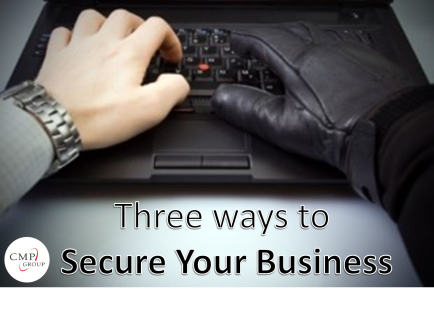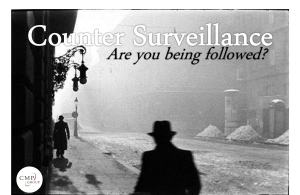Every time you buy something online, post an update on Facebook, or tweet your followers, your audience is larger than you could ever imagine.
You, yes you, are being watched. Every online click of the mouse leaves a cyber-footprint that is proving itself quite valuable in terms of research, as well as advertising. Just last week, it was revealed that Facebook allowed researchers to manipulate users’ news feeds by giving the researchers the ability to hide “good news” and “bad news” to see if it affected the emotions of other users. No, none of the users “signed up” per se, but offered their consent by clicking the “I have read and agreed to all terms” fine print when signing up to Facebook originally. It’s all in the fine print that no one reads.
More and more, online privacy is becoming an issue. At the CMP Group, we regularly use social media in our investigations. Take it from us how to maintain some sort of privacy online.
Sign out of your online accounts.
It’s convenient to have all your passwords memorized by the computer. At a very innocent level someone could easily impersonate you on your social networks, maybe write some ridiculous update or share a picture you would have never shared. Maybe they are just watching you. At a more sophisticated level, if your computer was ever hacked, someone now has access to any and all accounts that you have left open.
Don’t be too “friendly”.
Navigating and setting Facebook privacy settings can be quite time consuming. Invest the time in yourself and your online life with privacy settings, there are great tutorials out there. We can all be friends, but make your online social life reflect your actual social life. Give people different levels of access, not everyone in your life is privy to certain information. Also, be wary of people you don’t recognize who friend you. If they are “mutual friends” with your Aunt Sally in Florida, your old college roommate in Atlanta, an old friend that you barely speak to and one of your co-workers (all of whom have never been in the same state together, let alone the same room), it’s quite doubtful that the one requesting your friendship actually knows these people, or you for that matter. They may be trying to get into your social network for one reason or another. Deny them and alert your contacts.
Keep your devices password protected.
If your phone and tablet are left open and unlocked, think of it as leaving your home or car unlocked. Everything is fine, until it’s not. Your cellphone is so much more than a phone. You have most, if not all of your contacts saved, in addition to your banking, email, pictures, files, or company information, right on your device.
Wipe out your lost/stolen device.
Speaking of that device, install an app on your device that allows you to erase all the data from a separate device in the event it’s lost or stolen. Yes, it’s unfortunate that you lost your brand new iPhone, but the amount of data on that iPhone is the real loss, especially if it’s manipulated for any sort of criminal activity.
Google alert yourself.
Google has a handy feature called Google Alert. It alerts you daily (depending on your settings) for search terms that you’d like to see updates on. If you enter your name , and variations of your name. This is an easy way to see if there is anything online that you are unaware of – news articles, pictures, etc.









